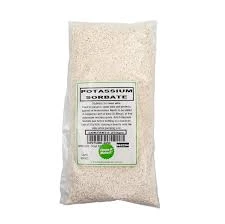
Common Applications of Trichloroisocyanuric Acid in Water Treatment and Disinfection
The Versatile Uses of Trichloroisocyanuric Acid
Trichloroisocyanuric acid (TCCA) is a powerful chemical compound primarily known for its use as a disinfectant and chlorinating agent. Its chemical formula, C3Cl3N3O3, reflects its composition, which includes chlorine, making it highly effective for various applications. In this article, we will explore the diverse uses of TCCA, underscoring its significance in numerous fields including water treatment, sanitation, and agriculture.
Water Treatment
One of the most common applications of trichloroisocyanuric acid is in water treatment. TCCA is extensively utilized for disinfecting swimming pools, spas, and drinking water. Its ability to release chlorine in a controlled manner allows it to effectively kill harmful bacteria, viruses, and other pathogens present in water. Unlike traditional chlorine tablets, TCCA has a longer shelf life and stability, making it a preferable choice for long-term water treatment solutions.
The use of TCCA in swimming pools not only helps in maintaining hygiene but also enhances the clarity of the water. By reducing the levels of algae and other contaminants, TCCA ensures that pool users enjoy a safe and pleasant swimming experience. Furthermore, its efficiency in disinfection means that less chemical volume is required, leading to cost-effectiveness for pool maintainers.
Sanitization and Disinfection
In addition to water treatment, TCCA plays a crucial role in sanitation and disinfection across various industries. It is widely utilized in healthcare settings, food processing facilities, and agricultural environments where the risk of contamination is high. Hospitals use TCCA to disinfect surfaces and medical instruments, preventing the spread of infections and ensuring patient safety.
In the food industry, trichloroisocyanuric acid is employed to sanitize equipment, surfaces, and water used in food production. Its quick action against pathogens helps maintain food safety standards, thus reducing the risk of foodborne illnesses. Similarly, in agriculture, TCCA is used to sanitize irrigation water, ensuring that crops are grown in a pathogen-free environment. This not only enhances crop yield but also contributes to the overall health of the produce.
trichloroisocyanuric acid uses

Agricultural Applications
TCCA also has significant applications in agriculture, particularly related to crop protection and livestock management. Farmers use TCCA to sanitize tools, equipment, and even livestock watering systems. By eliminating harmful microbes, TCCA helps in maintaining animal health and preventing disease outbreaks in livestock.
Additionally, TCCA can be employed in post-harvest treatment to extend the shelf-life of fruits and vegetables. By controlling microbial growth during storage and transportation, TCCA helps ensure that agricultural products reach consumers while still fresh and safe for consumption.
Environmental Impact and Safety
While TCCA is effective, it is important to handle it with care due to its chlorine content. Proper storage and usage guidelines must be followed to minimize potential health risks. Furthermore, using TCCA in moderation can mitigate any adverse environmental impacts, promoting sustainability while taking advantage of its benefits.
Conclusion
In summary, trichloroisocyanuric acid is a versatile compound with a wide range of applications, particularly in water treatment, sanitation, and agriculture. Its efficiency in disinfecting and sanitizing makes it indispensable in ensuring public health and safety in various sectors. As industries continue to seek effective solutions for contamination control, TCCA remains a go-to choice for many, reflecting its importance in modern hygiene practices. Understanding the uses and proper handling of TCCA is crucial for harnessing its full potential while maintaining safety for both users and the environment.
-
Why Glacial Acetic Acid Food Grade Is Essential in FlavorNewsMay.26,2025
-
Surging Export Growth of Food Additives in ChinaNewsMay.26,2025
-
How Ammonium Nitrate Fertilizer Boosts Crop YieldsNewsMay.26,2025
-
How 1,2,3-Benzotriazole Shields Plastics from UV DegradationNewsMay.26,2025
-
Cyanide in Gold Mining: Protecting People and the PlanetNewsMay.26,2025
-
Aluminum Hydroxide in Modern Sunscreen FormulationsNewsMay.26,2025
-
Understanding Synthetic Rubber OptionsNewsApr.27,2025
Hebei Tenger Chemical Technology Co., Ltd. focuses on the chemical industry and is committed to the export service of chemical raw materials.
-

view more DiethanolisopropanolamineIn the ever-growing field of chemical solutions, diethanolisopropanolamine (DEIPA) stands out as a versatile and important compound. Due to its unique chemical structure and properties, DEIPA is of interest to various industries including construction, personal care, and agriculture. -

view more TriisopropanolamineTriisopropanolamine (TIPA) alkanol amine substance, is a kind of alcohol amine compound with amino and alcohol hydroxyl, and because of its molecules contains both amino and hydroxyl. -

view more Tetramethyl Thiuram DisulfideTetramethyl thiuram disulfide, also known as TMTD, is a white to light-yellow powder with a distinct sulfur-like odor. It is soluble in organic solvents such as benzene, acetone, and ethyl acetate, making it highly versatile for use in different formulations. TMTD is known for its excellent vulcanization acceleration properties, which makes it a key ingredient in the production of rubber products. Additionally, it acts as an effective fungicide and bactericide, making it valuable in agricultural applications. Its high purity and stability ensure consistent performance, making it a preferred choice for manufacturers across various industries.











